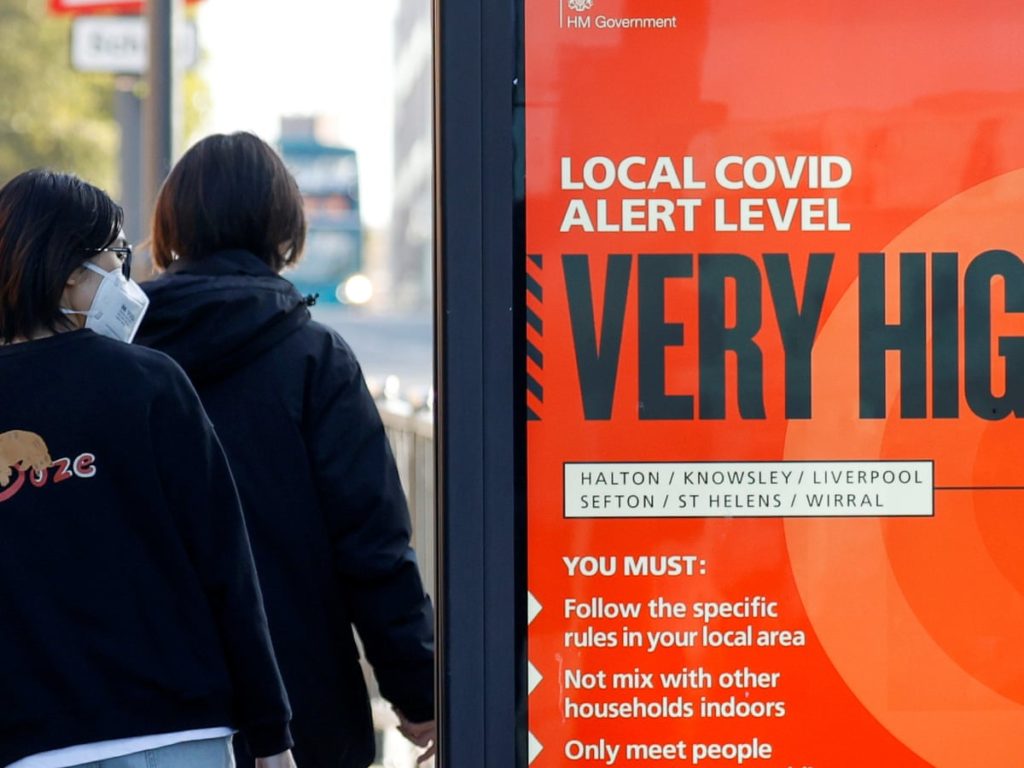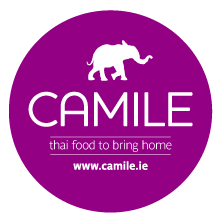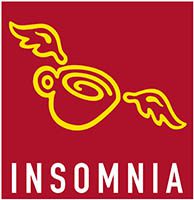Primeminister Boris Johnson stated in a Halloween address to the nation that although the government was pursuing local and regional lockdowns to curb the spread of the virus, the UK has to be, “humble in the face of nature.”
Johnson said while the R rate was low due to the hard work of the public with the adherence to government COVID-19 guidelines, the country, like the rest of Europe, is seeing the virus spread even faster than the ‘worst-case scenario of scientific advisers.’
This article has been adapted and summarised from HRMC’s website to best inform you. Make sure you keep informed and updated with any new developments through government websites.
Mortality
The government believes unless it acts, the country could see a mortality rate much higher than the one experienced in April. Speaking from 10 Downing Street, the Primeminister stated that without action, Hospitals would run out of capacity in weeks and both the medical and moral disaster of the virus overpowering the NHS would go beyond the “raw loss of life.”
“Because of the huge exponential growth in the number of patients,” the Primeminister stated and continued that, “it would mean that doctors and nurses would be forced to choose which patients to treat.”
“I’m under no illusions how tough this will be for businesses which have already had to endure hardship this year. I am truly, truly sorry for that.”
While the government did not want to close businesses in areas where the virus was at a low rate compared to the rest of the country, Primeminister Johnson said that is was his “sincere hope” that by taking “tough action” immediately they can allow families across the country to be together this Christmas.
For businesses, the government has extended the Furlough Scheme which sees 80% of an employees wages subsidised by the government along with further economic support announced for businesses.
Economic supports for businesses include a job retention scheme and business grants with mortgage payment holidays extended for borrowers who have been impacted by the pandemic. Initially, this was scheduled to end on October 31st.
Borrowers affected by COVID-19, and have not yet had a mortgage payment holiday are entitled to a six month holiday, and homeowners that have already started a mortgage payment holiday will be able to top up to six months without it being recorded on their credit file.
For work (and education), if you cannot work from home you can travel to your workplace. Non- essential shops, leisure and entertainment venues will be closed, though click and collect services can continue through the lockdown as well as essential shops as will providing care for vulnerable people and for volunteers.
Workplaces should stay open for people who cannot work from home.
Pubs, bars and restaurants have been forced to close as of today, except for takeaway and delivery services.
List of Restrictions
1. Local COVID alert level: medium and high
Pubs and bars, as well as social and members clubs (that serve alcohol for consumption on the premises) are legally required to close.
The government has stated they can remain open if they can operate if they are serving substantial meals like a restaurant, including main lunchtime or evening meals.
Alcohol
They may only serve alcohol as part of such a meal. Once the meal is complete they may not serve further alcohol as a standalone order.
If any business or venue is part of the premises of a business or venue which must remain closed as set out above, it must remain closed, unless they are in self-contained units that can be accessed from the outside. For example, a shop within a pub must close unless it can be accessed from the outside.
In some areas there may be additional restrictions and closures required by law. Check the local COVID alert level of your local area to see if additional restrictions apply.
2. Early closures
The following businesses and venues must close from 10pm to 5am:
- cafes, restaurants, pubs, bars and cafes, including those located inside other premises (workplace canteens are not included if there is no practical alternative for staff at that workplace).
- social clubs
- funfairs (indoors or outdoors), theme parks and adventure parks and activities
- cinemas
- theatres
Businesses and venues selling food for consumption off the premises, can continue to do so after 10pm as long as this is through delivery service, click-and-collect or drive-through. Orders must be made via phone, online, an app or by post.
Cinemas, theatres and concert halls can continue beyond 10pm, but only if the performance started before 10pm, and food and drink cannot be served after 10pm. This also applies to dedicated grassroots music venues (that is venues that would not be open unless a live performance was taking place).
The following venues do not need to close at 10pm, but must not serve alcohol after that time:
- workplace canteens (where there is no practical alternative for staff at that workplace)
- hospitality venues in ports (including airports and seaports), on transport services, and in motorway service areas
3. Restrictions on service of food and drink for consumption on the premises
Certain businesses and venues must take reasonable steps to ensure:
- customers only consume food and drink while seated in the premises
- if the business serves alcohol for consumption on the premises, orders are only taken from customers who are seated
- tables are appropriately spaced to enable social distancing
Take-away orders can continue to be made at a counter or bar (as can orders inside venues that do not sell alcohol).
These restrictions apply to:
- restaurants, pubs, bars, and cafes
- workplace canteens
- social clubs
- casinos
Cinemas, theatres and concert halls are exempt from the requirement to take orders and service customers whilst seated. Customers must be seated while eating or drinking.
These restrictions do not apply to:
- supermarkets, convenience stores, corner shops and newsagents
- fresh food retailers (such as butchers, bakers, greengrocers, fishmongers, and delicatessens)
- pharmacists and chemists
- petrol stations
4. Operating in a COVID-Secure manner
Businesses and venues are required under health and safety legislation to follow the appropriate COVID-Secure guidance for their sector.
Please see links to sector-specific guidance on ensuring businesses and venues can reopen safely.
- People who work in or run shops, branches, stores, or similar environments.
- Restaurants, pubs, bars, and takeaway services
- Accommodation
- The visitor economy and heritage locations
- Exhibition halls and conference centres
- Casinos, bowling alleys, and indoor play
- Close contact services
- Sports and leisure providers, playgrounds and outdoor gyms
- Community centres, village halls, and other community facilities
All businesses should demonstrate to their workers and attendees that they have properly assessed their risk and taken appropriate measures to mitigate it, for example by publishing their risk assessment online or making it available at the premises/event.
In particular, those operating venues or running events following COVID-19 Secure guidelines should take additional steps to ensure the safety of the public. This includes taking reasonable steps to prevent large gatherings of people which risk a breakdown of social distancing rules.
Individual businesses or venues should also consider the cumulative impact of many venues reopening in a small area. This means working with local authorities, neighbouring businesses and travel operators to assess this risk and applying additional mitigations.
These could include:
- for very large events, further lowering capacity – even if it is possible to safely seat a number of people inside a venue, it may not be safe for them all to travel or enter that venue
- staggering entry times with other venues and taking steps to avoid queues building up in surrounding areas
- arranging one-way travel routes between transport hubs and venues
- advising patrons to avoid particular forms of transport or routes and to avoid crowded areas when in transit to the venue
Businesses and venues must also take reasonable steps to ensure that social contact rules are followed within their venues. These rules differ depending on their local COVID alert level.
Businesses and venues subject to this requirement include:
- Hospitality venues: restaurants, cafes , bars, pubs, and other businesses that provide food or drink for consumption on the premises
- Leisure and tourism services: hotels and other guest accommodation, museums, heritage locations, cinemas, gyms and other indoor sport and leisure centres, sports clubs, sports stadia, outdoor swimming pools, casinos, amusement arcades, libraries, and music studios for hire
- Close physical contact services: hairdressers, barbers, beauticians (including wellness treatments), tailors, nail bars, piercing services, tattooists
- Services provided for social, cultural, and recreational purposes at community centres, youth and community centres, and village halls
Local COVID alert level: medium
Venues following COVID-19 secure guidelines can host more than 6 people in total, in line with guidance for their sector, but must not accept bookings or admit customers onto the premises in a group of more than 6 (unless they are all part of the same household or support bubble; or are hosting a wedding reception, wake, or other commemorative event). These businesses and venues must take reasonable steps to prevent customers joining other groups inside the premises (including outdoor areas, such as beer gardens).
Local COVID alert level: high and very high
Venues following COVID-19 secure guidelines can host more than a single household in total, in line with guidance for their sector, but must not accept bookings or admit customers onto the premises in a group containing multiple households (unless these are part of a support bubble). These businesses and venues must take reasonable steps to prevent customers joining other groups inside the premises (including outdoor areas, such as beer gardens).
See further information on social contact rules, social distancing and the exemptions that exist.
5. Face coverings
In England, customers and visitors over the age of 10 must wear a face covering in the following indoor settings.
Customers and visitors are expected to wear a face covering before entering any of these settings and must keep it on until they leave unless there is a reasonable excuse for removing it.
You should also wear a face covering in indoor places not listed here where social distancing may be difficult and where you will come into contact with people you do not normally meet.
Businesses must remind customers to wear a face covering where mandated, such as by displaying posters or taking other reasonable steps to ensure customers are aware that they should be wearing one.
Face coverings must be worn by retail, leisure and hospitality staff working in areas that are open to the public and where they’re likely to come into contact with a member of the public. This includes:
- shops
- supermarkets
- bars
- pubs
- restaurants
- cafes
- banks
- estate agents
- post offices
- public areas of hotels and hostels
If these businesses have taken steps in line with Health and Safety Executive guidance for COVID-19 secure workplaces to create a physical barrier between workers and members of the public then staff behind the barrier will not be required to wear a face covering.
See the latest on face covering guidance.
6. Test and Trace
Continued opening up of the economy and public services is reliant on NHS Test and Trace being used to minimise transmission of the virus. In order to ensure that businesses and local services are able to remain open, it is a legal requirement that organisations in designated sectors must:
- ask at least one member of every party of customers or visitors (up to 6 people) to provide their name and contact details
- keep a record of all staff working on their premises and shift times on a given day and their contact details
- keep these records of customers, visitors and staff for 21 days and provide data to NHS Test and Trace if requested
- display an official NHS QR code poster from 24 September 2020, so that customers and visitors can ‘check in’ using this option as an alternative to providing their contact details
- adhere to General Data Protection Regulations
Designated venues will need to keep records of customers, visitors and staff for a period of 21 days and make them available when requested by NHS Test and Trace or local public health officials to help contain clusters or outbreaks.
Hospitality venues must also take reasonable steps to deny entry to the premises when someone refuses to provide their details, or they have reason to believe someone has not provided accurate details.
See more about these requirements.
7. Employer duties for self-isolation
Employers must not knowingly require or encourage someone who is being required to self-isolate to leave their designated area of self-isolation. See more on working safely.
8. Compliance and enforcement
An owner, proprietor or manager carrying out a business (or a person responsible for other premises) who fails to fulfill the obligations placed on them in law, without reasonable excuse, commits an offence.
In England, Environmental Health and Trading Standards officers will monitor compliance with these regulations, with police support provided if appropriate. Businesses and venues that breach restrictions will potentially be subject to prohibition notices, and a person who is 18 or over, who carries on a business in contravention of the Regulations may be issued with a fixed penalty (fine).
With the support of the police, prohibition notices can be used to require compliance with the Regulations including requiring that an activity ceases. It is also an offence, without reasonable excuse, to fail to comply with a prohibition notice.
If prohibition notices are not complied with, or a fixed penalty notice not paid, you may also be taken to court, with magistrates able to impose potentially unlimited fines.
Businesses can be fined by local authorities or the police if they fail to fulfil the obligations placed on them in law, Fines will be issued:
- £1,000 for the first offence
- £2,000 for the second offence
- £4,000 for the third offence
- and then £10,000 for the fourth and all subsequent offences
Individuals can also be issued with a fixed penalty notice, starting at £200 for those who participate in illegal gatherings. The police also have the power to take action against those holding or being involved in the holding of an illegal gathering of more than 30 people. This includes issuing a fixed penalty notice of £10,000.
Local authorities and the Secretary of State for Health and Social Care also have the power to place restrictions on or close premises where they assess that they pose a serious and imminent threat to public health where this is necessary and proportionate to manage the spread of COVID-19 in the local authority’s area. See more information on these powers.
9. Support for your business
In England, under the Retail, Hospitality and Leisure Grant (RHLG) measures announced on 16 March 2020, businesses and venues in England in the retail, hospitality and leisure sectors will be eligible for cash grants of up to £25,000 per property.
Eligible businesses and venues in these sectors with a property that has a rateable value of up to £15,000 will receive a grant of £10,000. Eligible businesses and venues in these sectors with a property that has a rateable value of between £15,001 and £51,000 will receive a grant of £25,000. Businesses and venues with a rateable value of over £51,000 are not included in this scheme.
For more information please visit the government’s business support page.
10. Business rates
In England, as announced on 16 March 2020, the government will provide a business rates holiday for businesses and venues in the retail, hospitality and/or leisure sector. This includes the businesses and venues in scope for closure listed above. The relief will apply to business rates bills for the 2020 to 2021 tax year.









